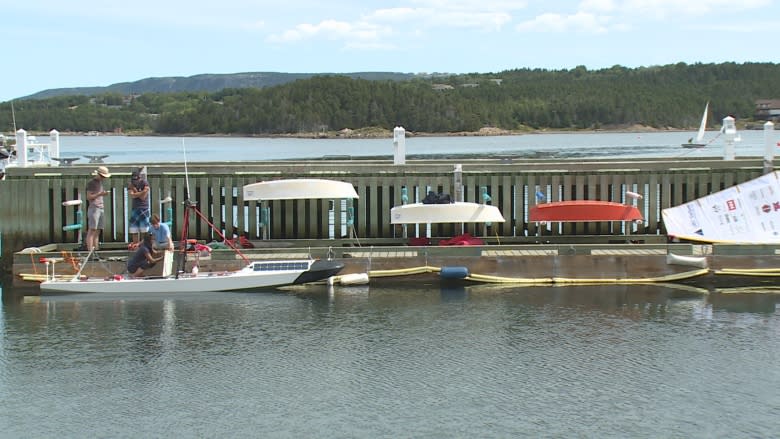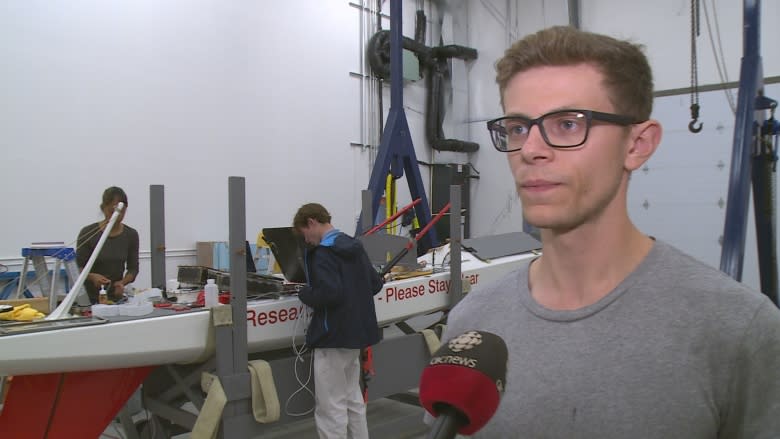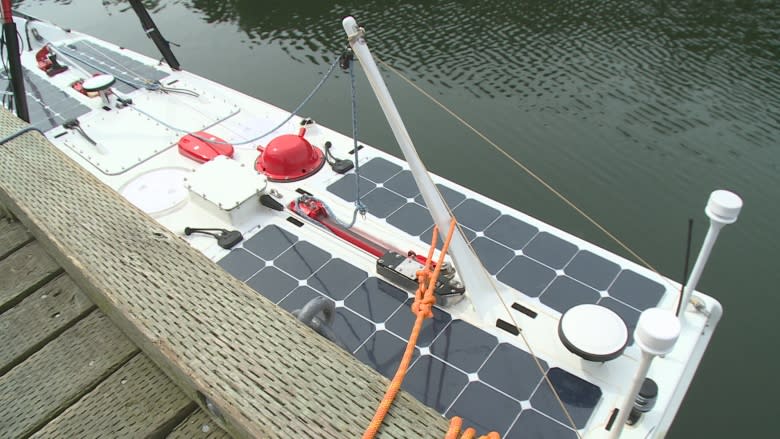Mechanical failure sends UBC Sailbot off course, drifting south
A self-sailing boat from British Columbia has encountered a mechanical failure in the Atlantic Ocean, and there is nothing her team can do about it.
Ada, a five-metre autonomous boat from the University of British Columbia, had been making great progress in her bid to cross the Atlantic until high winds damaged the rudder mechanism and left it unable to turn.
"She really wants to turn back onto course, but she's not able to," UBC Sailbot team member Youssef Basha said.
The team can only track the robotic boat online using a GPS that uploads her location every 20 minutes. On Monday, the boat began to unexpectedly turn southwards.
"The first point where she starts turning south was probably the hardest 20 minutes of our lives," Basha told CBC News.
"We gave it a few hours to see if maybe she'd be kind of able to correct course but that didn't happen so that's sort of when we knew that this is definitely a rudder, mechanical failure."
Basha said the boat is turned to the left as hard as it can — but Ada continues to sail south on the Atlantic Ocean about 800 kilometres off the coast of Newfoundland.
"My baby is out there on all on her own and there is nothing I can do," he said. "She is out on her own and there is very little we can do from over here to remedy that."
Basha is part of a group of UBC students who've spent years, and thousands of hours, working on the autonomous Sailbot.
The ambitious engineering and computer science students had hoped to break records being the first team to successfully navigate a robotic boat across the Atlantic Ocean.
The goal had been to land in Fenit, Ireland in about six to eight weeks.
Ada made it more than 800 kilometres when high winds hit. At a sailing speed of 12.4 knots, according to the Sailbot's data, the boat was pushed faster than the team had expected.
"She was designed for a hull speed of five and a maximum theoretical speed about a 11," said Basha
"So a speed of 12 knots puts her beyond the realm of what we accounted for in terms of mechanical stress."
Despite the mechanical failure Basha and his ambitious classmates see this as a success, as Ada made it more than 25 percent of the 3000 kilometre trip.
"We've built an incredible beautiful machine. I don't feel like I've lost anything. I don't' think any of us feel a loss here."
Basha said its too expensive to try and head out into the ocean to retrieve it, so the only hope now is that westerly winds will push the floating boat towards North America
"If anyone is sailing on that side. stay on the look out for a beautiful white boat. She says please stay clear but she does not bite. Please try to get her back to us."




